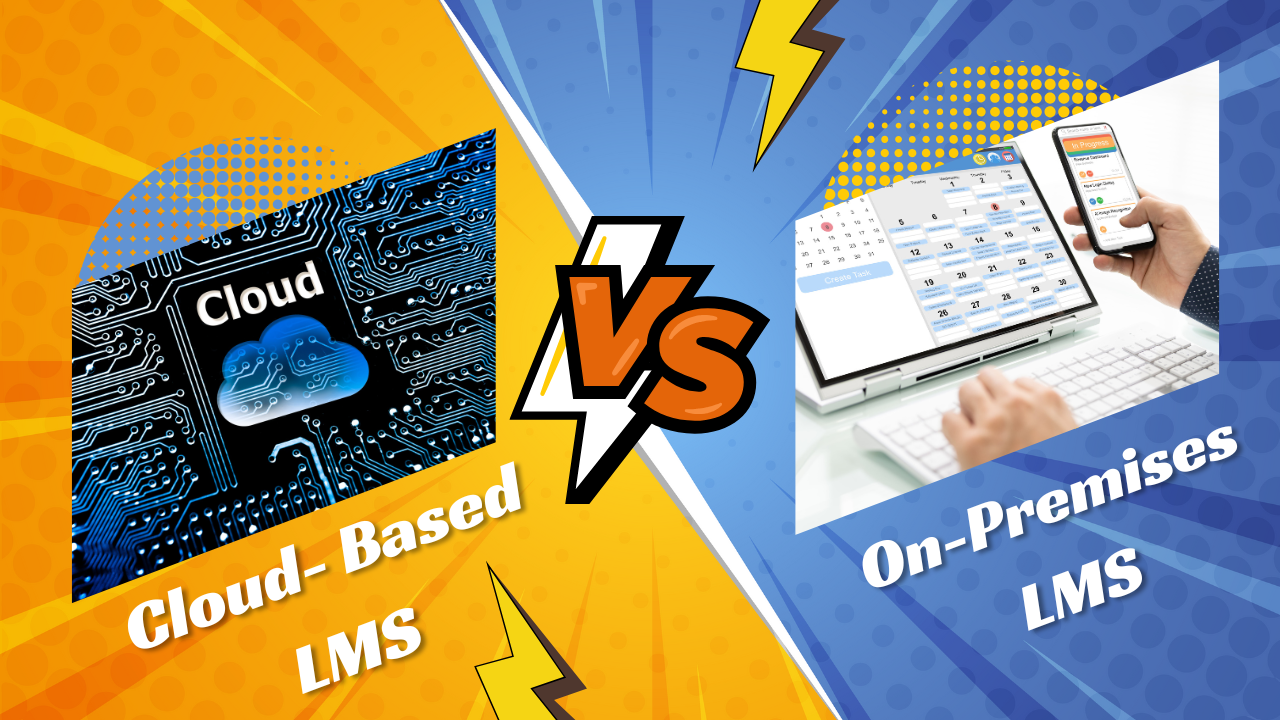Conquering the complex world of life science compliance training just got easier. Introducing microlearning, a revolutionary training approach is delivering bite-sized knowledge bursts tailored to the needs of busy Pharma and Biotech professionals.
Unlike traditional methods bogged down by rigid schedules and information overload, microlearning embraces flexibility and accessibility. Imagine learning essential compliance topics via engaging modules, seamlessly fitting into your workflow for optimal information retention.
But why is life science compliance training so crucial in the first place? The life sciences industry thrives on strict regulations, such as good manufacturing practices (GMPs).
So, how do Pharma and Biotech professionals stay ahead of the curve? By adopting modern training strategies like microlearning. It caters to their specific needs:
- Flexible learning: Bite-sized modules fit busy schedules perfectly
- Accessible knowledge: Learn anytime, anywhere on your mobile device
- Engaging formats: Games, videos, and interactive modules keep you hooked
- Enhanced retention: Spaced repetition and reinforcement ensure long-term learning
Microlearning isn’t just convenient; it’s a powerful tool for ensuring robust organizational compliance. Stay tuned as we delve deeper into its benefits and real-world success stories in the life sciences industry.
Understanding the Challenges of Life Science Compliance Training
The life science compliance training is a maze of stringent regulatory compliance requirements, safeguarding learning and product quality. From ever-evolving Good Manufacturing Practices (GMPs) to intricate regional guidelines, navigating this landscape presents daunting training challenges.
Traditional methods often fall short, leaving organizations grappling with the following:
Information Overload
A 2022 study by Ernst & Young found that 78% of life science organizations struggle with regulatory complexity, with regulations growing at an annual rate of 6%. Current training methods fail to reach busy professionals effectively due to their inflexible formats and limited accessibility.
Limited Skill Development
Compliance goes beyond memorization. A 2023 report by McKinsey & Company highlights the need for critical thinking, decision-making, and ethical skills in life science professionals. Traditional lectures need help to nurture these crucial abilities.
Time & Resource Constraints
Busy Pharma and Biotech professionals juggle demanding workloads, leaving little time for lengthy training sessions. Traditional methods often need more flexibility for busy schedules.
Microlearning Modules in Addressing Life Science Compliance Training Requirements

Ensuring compliance adherence in life science compliance training is crucial. Traditional training methods often need help with information overload, limited engagement, and time constraints. Enter microlearning, a game-changer delivering bite-sized knowledge resources proven effective in addressing compliance requirements.
Advantages of Bite-Sized Learning
- Enhanced Knowledge Retention: Microlearning uses techniques proven to be highly effective in helping learners remember information compared to traditional methods.
- Improved Engagement: Gamified modules, interactive videos, and quizzes provide an engaging and stimulating learning experience, boosting motivation and knowledge absorption.
- Accessibility & Flexibility: Learn anytime, anywhere on mobile devices, seamlessly integrating training into busy schedules. Microlearning empowers busy professionals to prioritize compliance learning.
- Bite-sized knowledge bursts: Break down complex topics into easily digestible modules (less than 10 minutes), perfect for busy schedules.
- Spaced Repetition & Reinforcement: Microlearning employs techniques proven to enhance long-term knowledge retention compared to traditional methods.
Tailored Learning for Specific Regulations
Microlearning modules can be customized to address specific regulations and industry needs, such as:
- Interactive simulations practicing GMP procedures
- Quizzes testing knowledge of new regulatory updates
- Bite-sized videos explaining complex ethical considerations
Real-World Success Stories/Case Study
- Pharmaceutical Giant Leverages Microlearning
A 2023 study by the Association for Talent Development (ATD) found that 73% of pharmaceutical industry organizations use microlearning for various training purposes, including compliance.
- Biotech Startup Onboarding
An article by Deloitte Insights, published in 2022, mentions how biotechnology companies increasingly use microlearning for faster and more efficient onboarding of new employees, highlighting its effectiveness in knowledge retention and engagement.
Microlearning isn’t just convenient; it’s a powerful tool for ensuring robust regulatory compliance across your organization.
Examples of Concise and Impactful Life Science Compliance Training Strategies

Forget the days of monotonous training sessions, leaving participants glazed over and disengaged. Modern professionals have tight schedules, limited attention spans, and information overload.
So, how do we deliver effective, engaging, and personalized learning that genuinely resonates and impacts learners? Here are powerful life science compliance training strategies designed to capture attention and maximize knowledge retention:
1. Immerse in Action: Scenario-Based Learning
Imagine plunging learners into realistic situations mirroring their daily work environment. They’re not passively absorbing information but actively making decisions, solving problems, and applying knowledge in real time.
This scenario-based learning boosts engagement, promotes critical thinking, and ensures knowledge sticks long after the training session ends.
2. Gamify the Experience: Interactive Simulations and Rewards
Transform dry theories into engaging, game-like experiences that motivate and reward. Interactive simulations test critical thinking, simulate real-world scenarios, and provide immediate feedback.
Add a dash of gamification with competition, collaboration, and points – learning becomes an exciting challenge, driving deeper engagement and knowledge application.
3. Bridge Theory to Reality: Real-Life Case Studies and Simulations
Ditch abstract concepts and draw learners in with relatable, real-world challenges and scenarios. Encourage critical analysis, discussion, and problem-solving based on practical examples.
By connecting theory to practice, learners gain a deeper understanding and see immediate relevance, fostering long-term knowledge retention.
4. Empower Individuality: Personalized Learning Paths
No two learners are alike. Cater to individual needs and learning styles with customized learning paths. Offer adaptive challenges and content recommendations based on progress and performance.
This empowers learners to take ownership of their learning journey, maximizing impact and efficiency while ensuring the training resonates with each participant.
Implementing Microlearning for Life Science Compliance Training
Life science compliance training demands engaging, accessible training that fits seamlessly into busy schedules. Here are the steps to implementing this powerful tool for practical life science compliance training.
1. Identify Key Learning Objectives
- Pinpoint specific regulations, procedures, or skills crucial for compliance.
- Break down these objectives into modular, easily digestible topics.
2. Craft Engaging Content
- Utilize interactive elements, videos, gamification, and scenarios to keep learners engaged.
- Ensure content is visually appealing, concise, and mobile-friendly.
3. Leverage Technology & Accessibility
- Choose a mobile-compatible platform for anytime, anywhere learning.
- Integrate microlearning modules into existing learning management systems (LMS) for seamless access.
4. Measure Success & Refine
- Track learner engagement, knowledge retention, and compliance performance.
- Use data to identify areas for improvement and refine modules for more substantial impact.
5. Continuous Improvement
- Stay updated on evolving regulations and adapt microlearning modules for continuous improvement.
- Creating an environment where ongoing learning is seen as a personal and professional advantage encourages employee knowledge-sharing and collaboration.
By strategically implementing microlearning, you can transform compliance training from a chore into a feature-rich experience.
Future Outlook of Life Science Compliance Training
In conclusion, microlearning emerges as a game-changer in the life sciences industry, addressing the pressing need for practical, engaging, and accessible compliance training.
Looking ahead, the future outlook of microlearning is brimming with potential. Emerging technologies like virtual reality and artificial intelligence offer exciting possibilities for creating immersive and personalized learning experiences.
Augmented reality simulations can further bridge the gap between theory and practice, while adaptive learning algorithms can personalize content delivery based on individual needs.
With its inherent flexibility and focus on continuous learning, microlearning provides a powerful tool for navigating this ever-changing landscape.
By investing in engaging, practical training, organizations can empower their workforce to adapt, excel, and safeguard patient safety and product quality in the coming years.
Experience microlearning at its finest. Schedule a free demo & see how it boosts engagement & results.









